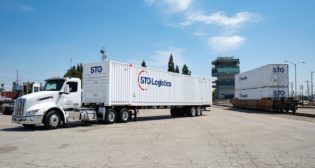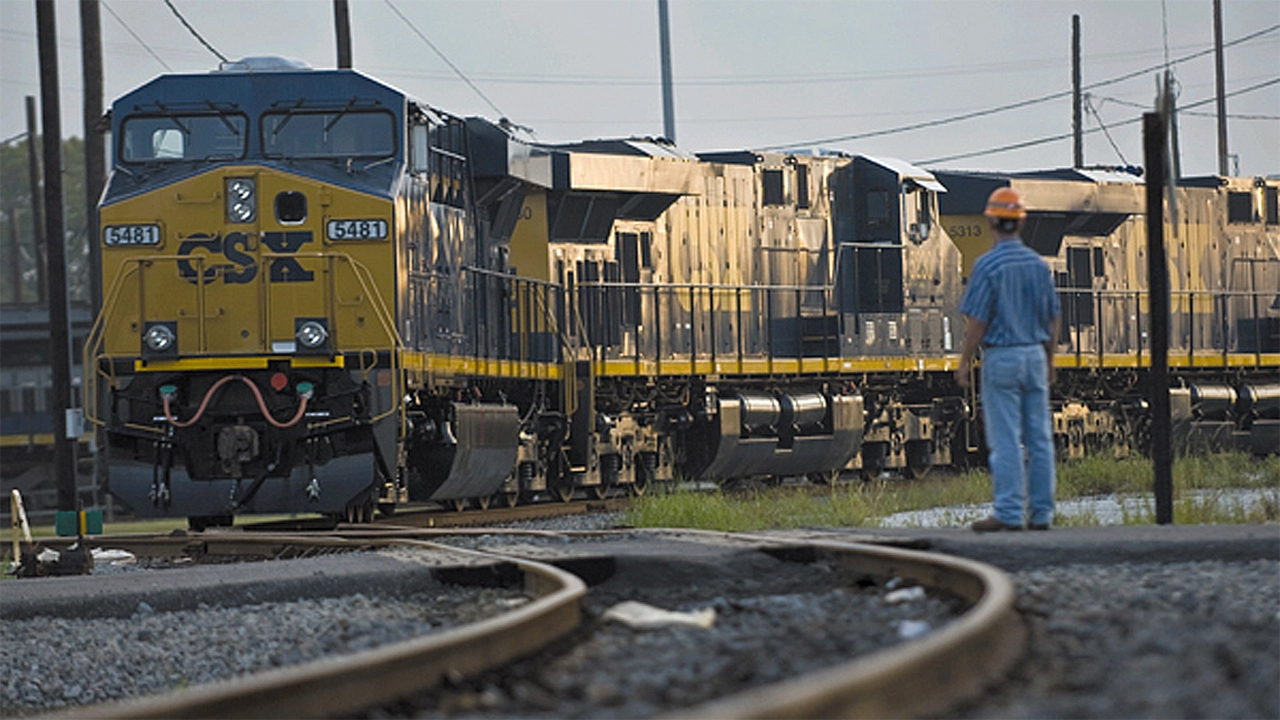
NCCC: First Two Freight Rail Agreements Ratified
Written by Marybeth Luczak, Executive Editor
More than three weeks after Presidential Emergency Board (PEB) No. 250 issued its recommendations on the stalled contract negotiations between 12 rail labor unions and the carriers, tentative agreements between the National Carriers’ Conference Committee (NCCC) and two of the unions have now been ratified by the unions’ membership, NCCC reported Sept. 14.
NCCC, which represents most major railroads (and many smaller ones) in national collective bargaining, said the two unions are the Transportation Communications Union/IAM (TCU/IAM) and the Brotherhood of Railway Carmen (BRC), which together represent more than 11,000 rail workers.
The ratified agreements implement the August 16 recommendations of PEB No. 250, including a 24% wage increase during the five-year period from 2020 through 2024—with a 14.1% wage increase effective immediately—and five annual $1,000 lump sum payments, according to NCCC.
“These are the first two agreements to be ratified in the national bargaining round,” NCCC said. “Ratification votes with other unions that have reached tentative agreements are pending, and the railroads continue to negotiate with unions that have not yet reached tentative agreements.
“Ratification by a third union, the International Association of Machinists, was unsuccessful. The railroads will work with the IAM to determine next steps. The parties have agreed to maintain the status quo pending current discussions.”
“After three long years of difficult bargaining, PEB 250 provided recommendations that led to a tentative agreement for our members to consider, TCU/IAM National President Arthur Maratea said in a Sept. 14 statement. “TCU and BRC members have now voted on the agreement and have elected to ratify this agreement. Among other improvements, this agreement ensures that every penny of the recommendations of PEB 250 goes directly to our members and protects our great healthcare benefits which our members need now more than ever. This has been a difficult time with a lot of misinformation and I appreciate the hard work of all our local and national representatives who worked tirelessly to ensure that every question was answered and that members had the accurate information needed to consider their vote for themselves and their families.”
Wilner Weighs In on Railroad-Labor Negotiations

Railway Age Capitol Hill Contributing Editor Frank Wilner on Sept. 14 told Railway Age: “The probabilities are improving for a breakthrough labor-management agreement before Friday [Sept. 16] to extend the so-called cooling off period to avoid a Friday [Sept. 16] strike or lockout that would create a nationwide rail work stoppage. The sides, meeting today, are recognizing that partisan politics, weeks before mid-term congressional elections, are making it extremely difficult, if not impossible, for a bipartisan congressional agreement on ending a work stoppage. The extension, by which the parties agree not to strike or lockout, but continue negotiating, could extend to after the November elections. (It would probably be easier to convince a Democratic lawmaker to sing the Oscar Meyer wiener song in front of a camera today than to vote against labor’s interests, demands and pleas and simply impose PEB recommendations. The only way out for Congress seems to be the parties agreeing on an extension of a strike or lockout deadline until after the elections.)
“Increasingly evident is that the National Mediation Board’s (NMB) 2-1 vote (the lone Republican dissenting) was ill-advised and even partisan in nature, which would be a mocking of the NMB’s neutral role in assuring the Railway Labor Act (RLA) remains a manual of peace rather than a manual of war. There was no valid reason to short-circuit mediation sessions as the NMB Democratic majority did. Collective bargaining and NMB-guided mediation already had been significantly curtailed owing to the COVID-19 pandemic and the parties’ inability to meet face-to-face. As RLA contracts never expire, but remain in force until amended, there was no hard deadline for ending mediation and turning the parties loose in the midst of an already extremely partisan election season.
“Separately, out of concern his joint hearing with the House Agriculture Committee on rail service failures could turn into distracting shipper-witness monologues on the need for congressional action to prevent a work stoppage, House Transportation and Infrastructure Committee Chairperson Peter DeFazio (D-Ore.) cancelled the [Sept. 15] event.
“In a related event, union efforts led by Brotherhood of Locomotive Engineers and Trainmen Dennis Pierce to elicit from the Surface Transportation Board a Directed Service Order halting rail embargoes ahead of a Friday [Sept. 16] work stoppage apparently failed. If in fact, his pleas to the STB were taken seriously, the agency’s General Counsel likely would have warned Board members that railroads have a due diligence obligation to protect assets and cargo in advance of a threatened work stoppage, and STB action to block such efforts would likely be enjoined by a federal court.”



